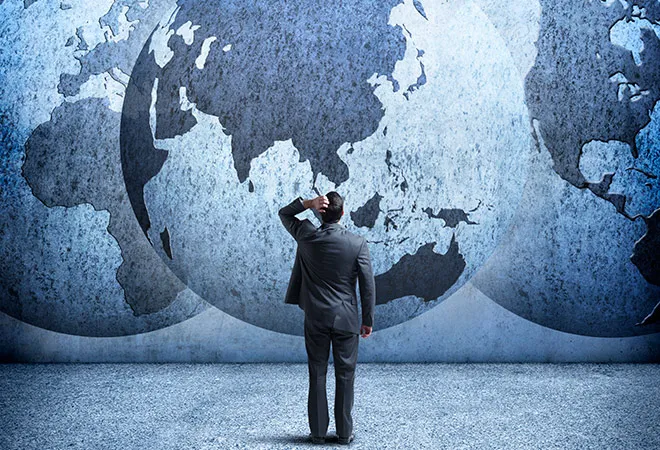-
CENTRES
Progammes & Centres
Location

The rise of China and India in the last few decades has caused a shift in the global power calculus. Indeed, there is a realisation amongst the Western powers that their power is being challenged by emerging hegemons in what is only a natural evolution of events. After all, in the post-war order, the West peddled its ideals across the globe, and by embracing those principles, the power and growth of many countries expanded. Yet, the rise of the Eastern powers is not the end of the story for the West. The US will continue to be the biggest global power along with India and China. Western ideals—of democracy, equality, liberty, and most importantly, global market economy—continue to be strong in many countries across the world. The West also remains the most coherent geostrategic bloc in the world despite ongoing political projects that are challenging the status quo.
One of the reasons why western ideals have sustained is because democracy and a market economy often get many things right. When it gets things wrong, there is scope for undoing those wrongs as the democratic system allows for decision-making that is corrective.
As the model of liberal democracy faces increasing challenges, it becomes the responsibility of the Western governments to find solutions for the same. For example, it will be very difficult for Europe to resolve its current problems until it recognises that the issues facing its citizens threaten their democratic systems.
The rapid outbreak of populism, for one, has become a major challenge in Europe, where economic and cultural anxiety feed into the populist discourse. What led to Brexit in the United Kingdom is an important example of dual anxiety. Stagnation in the income and growth amongst large sections of the population in Europe causes economic anxiety. and the problem of immigration fuels cultural anxiety. Unless Europe realises that these anxieties ought to be fixed—and be fixed through democratic means—populism will continue to grow exponentially.
It is important to note that the technological revolution will determine the future of politics. This revolution will change how we work, how we think, how we operate, and, most importantly, how the governments will operate. The first to understand the opportunities of technological revolution will own the future of politics. There should be coherent responses to such big questions; otherwise, public anger will only grow, and narratives being peddled by populist leaders will continue to be embraced.
Populist discourse in itself is a threat. With social media,the publicopinion is changing rapidly and unexpectedly the opinion becomes profoundly polarised, it will turn into a threat to the democratic system. Apart from the form, there is a spirit of democracy. And the spirit of democracy is: “give and take”. When two groups of people are so angry that they do not listen or talk to each other, it poses a problem for the democratic system.
The single biggest geopolitical reality of the current century will be the power that China will acquire over the years, by virtue of its economic growth and enormous population. This will fuel India’s desire to become bigger to maintain the global power balance. This leads us to the question: What led to the growth of India and China? It was the economic reforms embraced by both. More specifically, the embrace of market economics. In China’s case, if the country wants to further expand its economic growth, it has to embrace social reforms. If China wants to go to the next stage of economic development, they will have to resolve several systemic issues such as the rule of law and liberty to progress. Human beings everywhere want to be prosperous, free and their leaders accountable to them. It is inevitable that the people will push in that direction.
The views expressed above belong to the author(s). ORF research and analyses now available on Telegram! Click here to access our curated content — blogs, longforms and interviews.

Khalid Shah was an Associate Fellow at ORF. His research focuses on Kashmir conflict Pakistan and terrorism.
Read More +